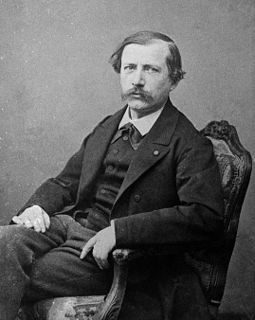A Quote by Ambrose Bierce
MYTHOLOGY, n. The body of a primitive people's beliefs concerning its origin, early history, heroes, deities and so forth, as distinguished from the true accounts which it invents later.
Related Quotes
What they teach you as history is mythology and true mythology is far from fantasy -- it is our true history. A bulk of our real history can be found in Egyptian and Greek mythology. Yes, myths reveal to us worlds of other dimensions that make up our true reality. History books teach us that the minds of the past operated on the same frequency, dimension, or level of consciousness as we do now. Not true at all.
Give us detailed, testable, mechanistic accounts for the origin of life, the origin of the genetic code, the origin of ubiquitous bio macromolecules and assemblages like the ribosome, and the origin of molecular machines like the bacterial flagellum, and intelligent design will die a quick and painless death.
When the coherence of the parts of a stone, or even that composition of parts which renders it extended; when these familiar objects, I say, are so inexplicable, and contain circumstances so repugnant and contradictory; with what assurance can we decide concerning the origin of worlds, or trace their history from eternity to eternity?
Science as we now understand the word is of later birth. If its germinal origin may be traced to the early period when Observation, Induction, and Deduction were first employed, its birth must be referred to that comparatively recent period when the mind, rejecting the primitive tendency to seek in supernatural agencies for an explanation of all external phenomena, endeavoured, by a systematic investigation of the phenomena themselves to discover their invariable order and connection.
Lest we forget at least an over the shoulder acknowledgment to the very first radical: from all our legends, mythology and history (and who is to know where mythology leaves off and history begins - or which is which), the very first radical known to man who rebelled against the establishment and did it so effectively that he at least won his own kingdom - Lucifer.
When we awake it is the animal, the plant, that thinks in us. Primitive thought without the least disguise. We see a terrible universe, because we see clearly. A little later, intelligence introduces its impeding contrivances. It brings the little toys which man invents in order to hide the void. It is then that we think we are seeing clearly. We attribute our uneasiness to the miasmas of the brain as it passes from dream to reality.
Whatever sphere of the human mind you may select for your special study, whether it be language, or religion, or mythology, or philosophy, whether it be laws or customs, primitive art or primitive science, everywhere, you have to go to India, whether you like it or not, because some of the most valuable and most instructive materials in the history of man are treasured up in India, and in India only.
We can now say with considerable confidence that the Bible is not a history of anyone's past.... The Bible's "Israel" is a literary fiction... Not only have Adam and Eve and the flood story passed over to mythology, but we can no longer talk about a time of the patriarchs. There never was a "United Monarchy" in history and it is meaningless to speak of pre-exilic prophets and their writings... The Bible deals with the origin traditions of a people who never existed as such
After all the allowances are made for the necessity of having a few supermen in our midst - explorers, conquerors, great inventors, great presidents, heroes who change the course of history - the happiest man is still the man of the middle class who has earned a slight means of economic independence, who has done a little, but just a little, for mankind and who is slightly distinguished in his community, but not too distinguished.
Do these fuels result always and necessarily in one way from the decomposition of a pre-existing organic substance? Is it thus with the hydrocarbons so frequently observed in volcanic eruptions and emanations, and to which M. Ch. Sainte-Claire Deville has called attention in recent years? Finally, must one assign a parralel origin to carbonaceous matter and to hydrocarbons contained in certain meteorites, and which appear to have an origin foreign to our planet? These are questions on which the opinion of many distinguished geologists does not as yet appear to be fixed.
































